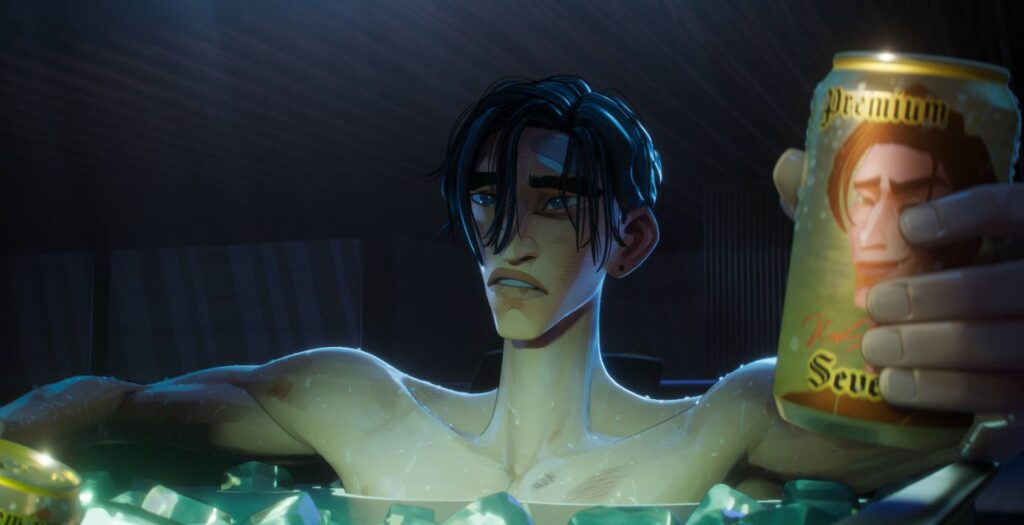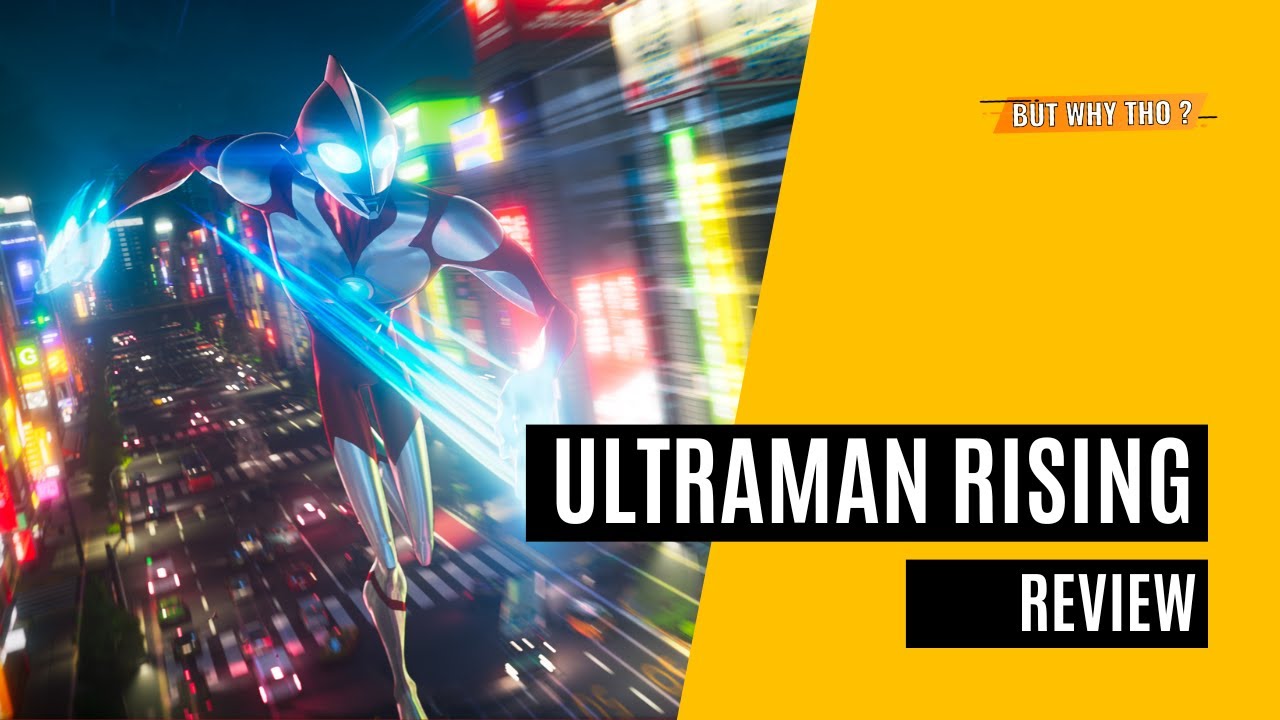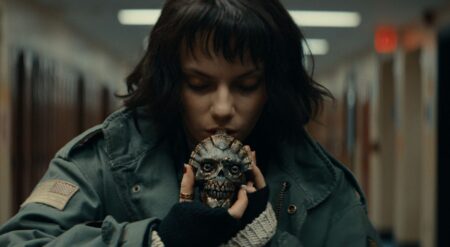Stepping into the middle of a hero’s journey is a hard narrative task. You have to balance the past and the expectations of the present and make the audience understand the complications at hand without relying on expository dumps. It’s a balance you have to strike that honors your characters but trusts your audience at the same time—Ultraman: Rising does just that. A Netflix Original animated feature film, Ultraman: Rising is directed by Shannon Tindle, co-directed by John Aoshima, and written by Tindle and Marc Haimes.
Based on the iconic tokusatsu legend Ultraman, this animated feature is different in the character’s long and storied legacy. With Kaiju battles, maniacal government agencies, and a lot of family drama, Ultraman: Rising is an all-ages genre blender that never loses its heart, which is firmly rooted in Japan and its Ultraman history—which also comes from the production collaboration between Netflix and Tsuburaya Productions.
With Tokyo under siege from rising monster attacks, baseball star Kenji Sato (Christopher Sean) reluctantly returns home to take on the mantle of Ultraman. He’s left the Dodgers and taken a spot on the Giants in Tokyo, but he’s out of place. He’s ni acqui ni alla. He’s neither here nor there. Kenji, who goes by Ken, makes it clear that growing up in the U.S. wasn’t easy after his mother left his dad, Professor Sato (Gedde Watanabe). But returning “home” isn’t the same either. The way he carries himself and the way he plays baseball are all constantly under scrutiny for not being Japanese enough. But this isn’t a story about navigating two worlds. Rather, it’s about becoming whole in one again.

Despite the drama, this is an Ultraman story; only Ken isn’t the best at his nighttime job. Everything changes when the titanic superhero is forced to adopt a 35-foot-tall, fire-breathing baby kaiju. When he names her Emiko (Tamlyn Tomita), well, he’s done. Ken must rise above his ego to balance work and parenthood while protecting the baby from forces bent on exploiting her for their own dark plans.
Ken starts the film as hurt. Ken’s grief is a wall between him and everyone else, manifesting itself as arrogant bravado and a spiteful acceptance of the mantle of Ultraman. He’s not unlikable, but he is selfish in a way that is noticeable to any child who has had to pick up their parent’s choice for them. With his mother presumed dead, Ken’s anger is only toward his father—the man who was Ultraman and, ultimately, the dad who chose kaiju over his son. Ken’s isolation is only broken when interacting with his AI helper, Mina (Tamlyn Tomita). She cares for him, mothers him, and keeps Ken on target and task.
However, when Ken is thrust into fatherhood, he’s forced to realize that life exists beyond himself. In doing so, the bridge between him and his own father begins to be rebuilt. Look, I am pro-cut off the rotting limbs of a family tree. And sometimes, that’s the message people need in order to set boundaries and take care of themselves. But other times, it’s healing to listen. That’s the story we get in Ultraman: Rising. It’s not one about coming out and abandoning a legacy thrust upon you by your parents. Instead, it’s about growing into it and learning why your parents made the choices that they did for you. Sometimes, you can only do this when you’re put in the same position.

But the most important thing is that Ultraman: Rising doesn’t devalue the heavy weight that Ken has to carry. It’s still a burden, even if it’s one that he eventually embraces. Ken’s struggle and grief are never minimized but rather put into conversation with his journey. We understand how hard it is for him to fill his father’s shoes, the fear of letting of everyone down, and the deep loneliness from losing his mother. He carries it all and he doesn’t need to ignore it, he just has to process it and he does.
It should also be said that Ken’s connection with Emi, the kaiju he takes in and names, isn’t simple or immediate. We see Ken grow into a man who can be a father. One who puts something before himself. There are moments of joy and love and moments where your stomach falls. This is particularly true at the start of the third act when Emi is injured and Ken has to grapple with her fragility, even if she is a kaiju. She is a child first, and the film never forgets that once Ken learns that too.
Ultraman: Rising is as much a story about fatherhood as it is about kaiju and fighting back against a misguided villain, Dr. Onda (Keone Young). The narrative prioritizes emotion and connection as much as it does action spectacles. It balances the adrenaline rush of excellently crafted animated action and the emotional gut punches of parenting in an incredibly special way. There are layers to Ultraman: Rising that use the animation medium to the fullest, and narrative balance and exploration are among them.

With a perfect story, the animation rises to meet it. The mixture of animation styles and the bevy of references to anime, manga, and the tokusatsu tradition is clear. It’s an ambitious swing for the fences with a hyperstylization and smart use of 2D and 3D art that never feels forced. It’s the best animation that has come out of the United States since the Spider-verse series.
Ultimately, it shows how understanding the diversity of the medium can be used to create the best animated film of the year. Industrial Light & Magic is known for its special effects work on large genre-defining franchises like Star Wars, but their animation work is untouchable.
Ultraman: Rising is easily the best animated film of the year, and I don’t know if anything will surpass its emotional depth and artistic beauty. As a story, the film takes large swings at your heart. Animation pushes the boundaries, blending multiple art styles to expertly craft characters and places that feel uniquely and tangibly human despite their stylized proportions and designs. You’ll cry, you’ll cheer, and more importantly, you will feel something.
Ultraman: Rising is streaming exclusively on Netflix on June 14, 2024.
Ultraman: Rising
-
Rating - 10/1010/10
TL;DR
Ultraman: Rising is easily the best animated film of the year, and I don’t know if anything will surpass its emotional depth and artistic beauty.








